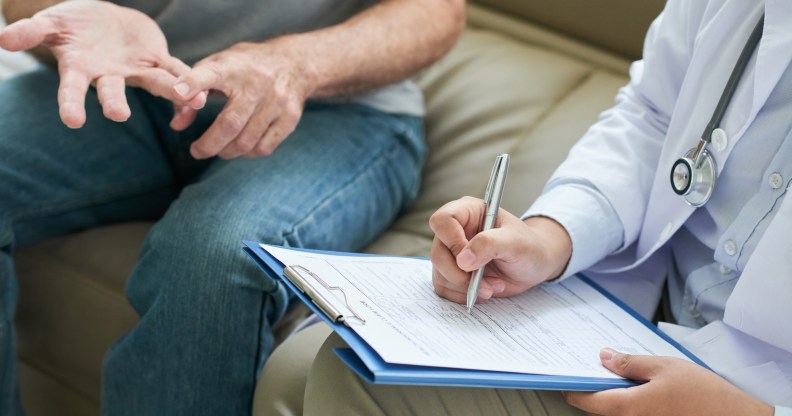This UK doctor thinks asking patients about their orientation or gender identity is ‘laughable’ and ‘offensive’

The Women and Equalities Committee said that sexual orientation and gender identity monitoring should become mandatory within 12 months. (Envato)
The Women and Equalities Committee has published a report on “unacceptable inequality” in LGBT+ healthcare, and recommended that asking patients about their sexual orientation and gender identity should be made mandatory.
The committee said the monitoring of sexual orientation and gender identity by the NHS and social care sector would improve “poor and patchy” data collection and help to identify strategies to tackle health inequality for LGBT+ people.
According to the report, published on Tuesday, October 22, LGBT+ people are more likely to suffer from cardiovascular disease, mental health problems, and obesity than non-LGBT+ people.
While monitoring is currently voluntary, it was recommended that monitoring should become mandatory within the next 12 months, although patients would still be able to choose not to answer the questions.
The report states: “Any service provider who does not implement it should face fines at a level equivalent to those imposed for not monitoring ethnicity.”
But one UK doctor hit back at the report, and told The Sun that he thinks asking patients about their orientation or gender identity is “laughable”.
Dr Peter Swinyard is the chairman of the Family Doctors Association, and he said: “These questions are laughable and will cause many people a lot of offence.
“I barely have time to address the medical issues of the patient sat in front of me, without quizzing them on their sexuality and gender identity.
“We need to be sensitive to the needs of LGBT people but asking every patient what they get up to in the bedroom is not the way to do it.”
Maria Miller MP, chair of the Women and Equalities Committee, said: “We found a lot of good will in health and social care services to make them LGBT inclusive, and examples of good practice that must be shared and embedded in our services.
“But unfortunately, the best will in the world won’t change the systemic failings in areas such as data-collection and training that are leading to poorer experience when accessing services, and to poorer health outcomes for LGBT people.
“This can never be acceptable. LGBT-specific services play an essential role in the health and social care services for the moment and must be maintained as long as that’s necessary, but mainstream services must move now ensure that they are inclusive and are effectively identifying and taking into account the needs of the LGBT communities.
“We must eliminate the unacceptable inequalities in health outcomes that glare out wherever you look.”

